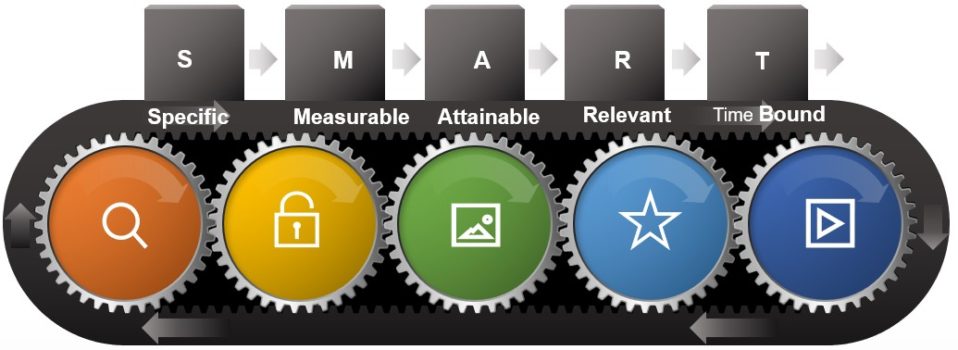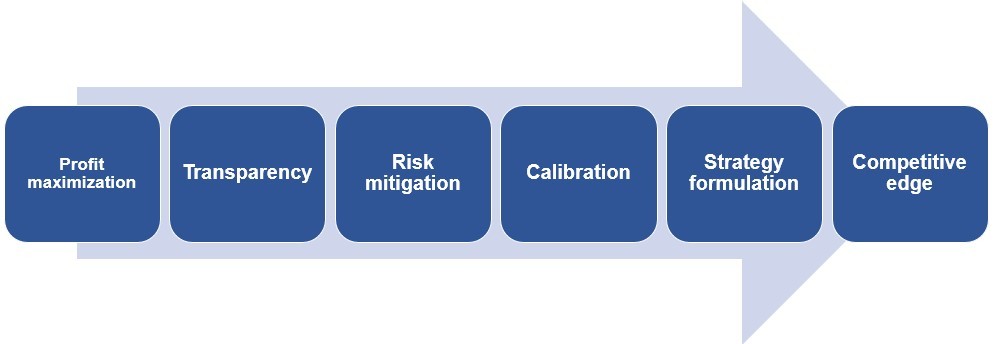Still, waiting for your yearly salary hike letter from your Boss? Well, your Boss might be busy calibrating you against the set KPI for employees. How much importance do these KPIs hold, that they ultimately decide your take-home salary? Top-level management determines Smart KPI for their company to make it easier to track their performance against the set benchmarks set.
Table of Contents
What is KPI full form?
KPI full form is Key Performance Indicator. KPI stands for key metrics which reflect the company’s overall performance. It acts like a benchmark standard against which the company’s performance is measured. Each department of the company will have its own KPIs as below:
- Finance department – They will have their own financial KPIs like Gross profit margin should not fall below 50% or Debt equity ratio should not exceed 2.
- Sales department – Sales KPI will be meeting a defined sales target in a particular quarter or customer retention rate should be lesser than 40%.
- Collection department – Collection KPIs will be 80% of the accounts receivables should be recovered or bad debts should be less than 1%.
Similarly, the overall business KPI will be determined in accordance with the goals and objectives of the company. Key results achieved will be compared against the set KPIs. Instead of KPI, Smart KPI is practical and makes more sense.
What is Smart KPI?
Smart work always fetches better results than hard work. The same applies to KPI, where Smart KPI will fetch far better results than just KPI. Let us study what Smart KPI means along with examples in detail.
Smart KPI stands for:
- S – Specific
KPI determined should be very specific because a vague KPI will never help in achieving wanted results. KPIs should be precise and peculiar.
Example – Sales KPI says retain customers as much as possible. This KPI is very vague with no specific number or percentage mentioned. If an employee is able to retain 1 customer is as good as the other retaining 50 customers. Instead, if the Sales KPI was customer retention should be at least 50% of your total customer base. This means that an employee who is able to retain 1 customer as compared to 50 assuming both have the same customer base of 100, the one who has retained 50 is likely to achieve the smart KPI.
- M – Measurable
KPI so set should be such so as to help in measuring the performance of the business. KPIs should be quantifiable else measuring results will become impossible.
Example – One of the Sales KPI says to maintain a healthy relationship with customers. Thus KPI cannot be measured as it is not quantifiable. Instead, if the Smart KPI was to call all the customers at least once in 2 weeks, then it becomes measurable as a number of calls can be measured against the KPI set.
- A – Attainable
KPI should be attainable in a way that yields results. KPI qualifies as Smart KPI if it is achievable and practically set. Historical track records, and industry research should be done before setting an attainable KPI.
Example – One of the Collection KPIs was to manage the collection process in a way to ensure zero bad debts. This is not practical as if credit is given to the debtors on such a large scale, it is very likely to have bad debts. But instead setting a Smart KPI of bad debts of 1% is still achievable.
- R – Relevant
Relevant KPI means to set a KPI which is pertinent and appropriate from a business point of view. It should be apt and suitable for the business.
Example – Setting a Sales KPI of maintaining a personal relationship with the customers is absolutely irrelevant. No customer would like personal interference. Rather the Smart Sales KPI should be to pitch for repeated sales from existing customers. It will help the business to increase brand loyalty.
- T – Time-bound
Specific time deadlines should be set for the outcome of an activity. A KPI without any defined timelines will not result in a productive outcome.
Example – Sales KPI defined as selling a minimum of 100 products as soon as possible is incorrect. This is vague without any defined timelines. Smart Sales KPI should be to sell 100 products within a month’s time.

The above Smart KPIs explained with the help of examples are useful for any successful business. If these KPIs are set in accordance then through KPI reporting and dashboards KPI analysis will help a business to achieve its goals in the long run.
Benefits of using Smart KPI
Smart KPIs are vital for businesses through which they know how well are they performing as compared to the forecasted KPIs. Below are the benefits of setting a Smart KPI:
- Profit maximization
If Smart KPI is achieved internally then the business should be assured that the profits will be maximized. It is more like a report card to see whether you are meeting internally set benchmarks or not which will be expressed in the financial figures. Meeting KPI is directly proportional to increased revenues and profit margins.
- Transparency
Smart KPI set by the top-level management helps promote transparency. Communicating KPI keeps things clear between the management and the employees. Calibration by managers becomes quick and easy without any bias. Employees are also aware of their rankings or stacks based on the KPIs achieved.
When Smart KPI is defined, it is in accordance with the goals and objectives of the company. It further helps in risk diversification as if any KPI is not met, it is red-flagged, thus attracting the immediate focus of the top management to take corrective actions. Risk is mitigated at all levels.
- Calibration
Rewards, recognition, hikes, bonus, everything depends upon calibration and setting Smart KPI for employees. If an employee is not meeting any of the KPI, then he will be put into a performance action plan to improve his skills. Internal rankings among the employees are based on these KPIs.
- Strategy formulation
Identifying Smart KPI that suits a company further helps in formulating the right strategies for growth, expansion, and profit maximization. Making the best use of the resources to explore opportunities becomes easier.
- Competitive edge
Use Smart KPI to beat your competitors. Just KPIs don’t work as much as Smart KPIs. Practical application of these will help to get a competitive edge. Sustaining through difficult times becomes easier.

The above benefits justify the usage of KPIs. It is definitely worth investing time in setting them right, as the results are deemed to be fruitful for the business. in the long run
Make sure your Smart KPI remains Smart?
Fast pace environment changes the demands, thus old methods become irrelevant and obsolete. Similarly, Smart KPI once set was good enough for producing results, but may not be relevant today. KPI analysis through reports will reveal huge insights into whether the KPIs set are still relevant in the current market or not. Thus, it is important to keep your Smart KPI Smart, to know How to read below:
- Set Smart KPI
- Collect information about the actual performances
- Compare the actuals vs set KPIs
- Review – Analyze if the variance is positive or negative and in case any of them seems off, change them based on industry research.
With the changing times, do review your once set KPIs and incorporate any change if required.
FunFact:
As per the survey, those startups that used Smart KPIs in their initial phase were found successful in the long run. The percentage of success was more than 60%.
Have you used these yet?


